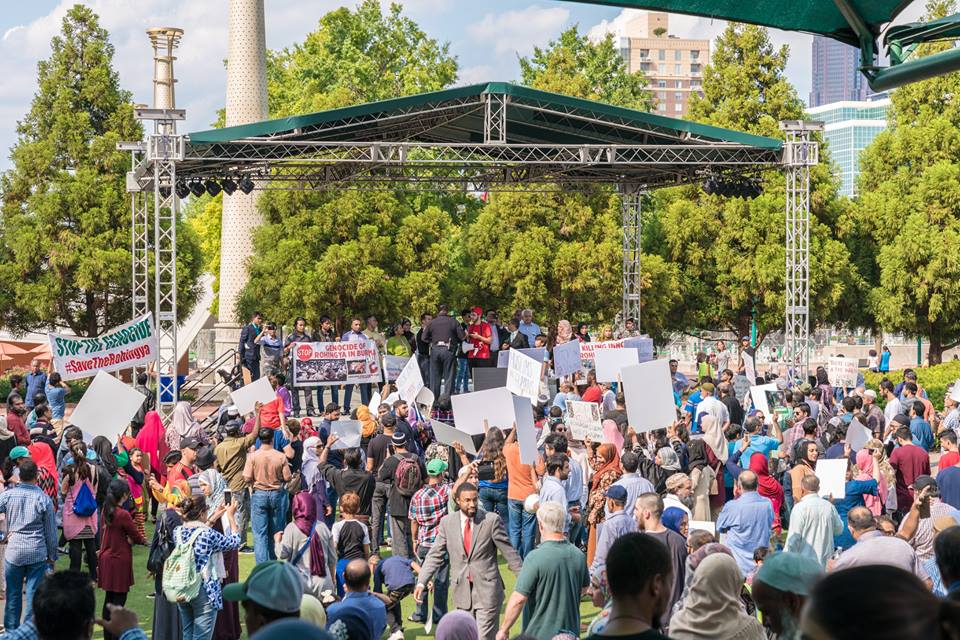 (ATLANTA, GA – 9/17/17) The Georgia chapter of the Council on American-Islamic Relations (CAIR-GA) today thanked the more than 500 Georgians who joined an Atlanta march yesterday against the Burmese government’s ongoing ethnic cleansing of Rohingya Muslims.
(ATLANTA, GA – 9/17/17) The Georgia chapter of the Council on American-Islamic Relations (CAIR-GA) today thanked the more than 500 Georgians who joined an Atlanta march yesterday against the Burmese government’s ongoing ethnic cleansing of Rohingya Muslims.PHOTOS FOR PUBLIC USE: 500 People Join Atlanta March Against Burmese Violence
During the march, which included almost 200 members of Georgia’s Burmese community, activists expressed solidarity with Georgia’s Rohingya residents, and called upon Georgia senators David Perdue and Johnny Isakson to join Senator John McCain in supporting a Senate resolution that would condemn the Burmese government’s violence.
The Burmese Rohingya Community of Georgia, Inc. (BRCG) and CAIR Georgia also released an electronic file documenting some of the violence the Burmese government has allegedly committed against its Rohingya Muslim population in recent weeks, including acts of torture, arson and murder.
VIDEO & PHOTOS FOR PUBLIC USE: Alleged Attacks On Rohingya Muslims (Warning – Very Graphic)
Over the past several weeks, Burmese soldiers and mobs have traveled through Rohingya villages in Myanmar, burning down homes and displacing 300,00 people. The BRCG has sifting through online photos of the violence to identify, verify, and compile evidence of the violence.
“The world failed to intervene in Rwanda. The world failed to intervene in Srbrenica. The world still has a chance to act in Myanmar,” said Edward Ahmed Mitchell, executive director of CAIR Georgia. “Georgia, which is home to thousands of Burmese-Americans who fled persecution, has a role to play in stopping Myanmar’s campaign of ethnic cleansing.”
In a Sep. 12th letters sent to Senators Isakson and Perdue, CAIR Georgia and the Burmese Rohingya Community of Georgia, Inc. encouraged them to support John McCain’s Senate Resolution 250. So far, Senate Majority Leader Mitch McConnell has refused to bring the resolution to the Senate floor for a vote.
The Obama Administration eased financial sanctions in Myanmar in 2012, after its authoritarian government freed some political prisoners and allowed elections. However, Burma has since escalated its ethnic cleansing of Rohingya Muslims, who the government does not recognize as citizens.
“Although the United States cannot and should not intervene in every global humanitarian crisis, our nation has a unique opportunity and obligation to stop the Burmese regime before this violence escalates from ethnic cleansing into an outright genocide,” Mitchell said.

